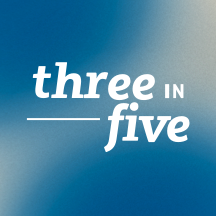Steve Peacher: Hi everyone thanks for tuning in. I'm Steve Peacher President of SLC Management, and this is “Three in five,” in which we ask three relevant questions to experts across our platform. And today I’m joined by Amy Price who's President of BentallGreenOak. Amy thanks for joining.
Amy Price: Absolutely, thanks for having me.
Steve Peacher: Amy, my first question: recently Sonny Kalsi, who's the CEO of BentallGreenOak, have made a bold announcement regarding your future hiring plans. What was it that he mandated for BGO and how was that received internally?
Amy Price: Well, he did make a bold announcement on behalf of our company and I guess the quick context is we are committed to being a leader in our industry when it comes to equity, diversity and inclusion. So, last summer Sonny announced a two thirds hiring goal for BGO. So what that means is that 67% of the new hires that we make are going to be women or visible minorities. And that's really the component of diversity that we can identify through the recruiting process. So, I think you asked how it’s been received – honestly very well. You know, naturally, there are some early questions and reactions, along the lines of, you know, “how are we actually going to do that?”. You know the answer simply is we're going to work harder and we're going to recruit differently. And, overall, I really feel that part of the culture of BGO you know is really aligning with this view that we need to be a more diverse team, you know, we need to represent our investors and our tenants. And frankly a very helpful catalyst for all this is that our investors are caring a lot more, right, they're measuring their managers along dimensions of diversity and inclusion in a much greater way. So that's really helped shift the conversation from what's nice to do and what's a business imperative.
Steve Peacher: You ended up putting this to the test in the first quarter and you had the opportunity to hire a lot of people at BGO, and so what was your experience in terms of being able to hit the diversity goals that Sonny laid out?
Amy Price: Yeah I mean honestly I think we were all surprised by how phenomenal the recruiting statistics were for the first part of this year. So we have hired 95 people globally, and of that group of new hires 59% are female and 40% identify as belonging to a visible minority. So when you combine that it means 80% of the people that we hired are either female or visible minorities, and some are both. So it's been great. And the other thing I’d say is within the U.S., Europe and Asia, where we can capture more specific racial identity data, 16% of those new hires are black so that's really important, because you know that is one of our most underrepresented groups so being able to make some traction there is great. And then the last thing I’d say is another metric we can look at is the amount of women that we have on our senior leadership team. So, at the start of the year we were 19% female in kind of a managing director and up level. With promotions and with these new hires we're now up to 25% female and that number is climbing as we continue to hire, so we're really making a really meaningful impact on many of these dimensions.
Steve Peacher: You know I’ve been an asset manager my whole career and I think I can say that the industry in general hasn't covered itself in glory in terms of achieving diverse work workforce over the years, and so those kind of results are really outstanding and I think the question that will be on people's minds when they hear that is: how did you do it, how did you achieve those results?
Amy Price: Yeah well, this is the heart of it right? Honestly, I know it probably sounds pretty cliché but I’ll say a couple things, right. One is we've worked harder you know, to find diverse talent. It's been intentional, it's taken more patients and more creativity. A few examples things we've done one is we've cast a wider net, so we've used social media LinkedIn, in particular, to really try and get you know a lot of exposure in the market and cull through a lot of interest in order to find candidates. We've told some of our recruiting partners that we're not going to extend an offer until we've seen a diverse slate of candidates, so you know, instead of taking maybe a first strong candidate, you know it has taken us a little longer. We've had to go back, we've had to ask to see more, but we've been able to hire some really awesome talented women and minorities. And then last thing I’d just say is, at the end of the day you know it's our business leaders who are making these hiring decisions, so really how do we get you know these results? It's by having a senior team who's really genuinely bought into this and the success that we've had this year is really a result of their efforts.
Steve Peacher: Well it's really an outstanding result I think BGO is setting an example for the rest of SLC Management, which is great. So, final question Amy: I know you are a rugby player in college, obviously a contact sport – is there anything that you learned on the rugby pitch that has been particularly helpful in your career in commercial real estate?
Amy Price: Yeah that's a good question, so rugby is definitely full contact, it's definitely a team sport. If you've ever been in a scrum you know what I’m talking about. You're definitely a team, and you work as a group so that's been helpful. But honestly, the culture of rugby is not just about what happens on the field it's about what happens after you're done with a match. And there's a lot of camaraderie, songs etc. And I think that's also really relevant to our industry and just the relationships and the sense of belonging to a strong culture.
Steve Peacher: Okay note to self, we need to hire more rugby players at SLC Management and across the affiliates. Amy thanks a lot today, and thanks to everyone for tuning in.
Amy Price: Thanks for having me.
This podcast is intended for institutional investors. The information in this podcast is not intended to provide specific financial, tax, investment, insurance, legal or accounting advice and should not be relied upon and does not constitute a specific offer to buy and/or sell securities, insurance or investment services. Investors should consult with their professional advisors before acting upon any information contained in this podcast. This podcast may present materials or statements which reflect expectations or forecasts of future events. Such forward-looking statements are speculative in nature and may be subject to risks, uncertainties and assumptions and actual results which could differ significantly from the statements. As such, do not place undue reliance upon such forward-looking statements. All opinions and commentary are subject to change without notice and are provided in good faith without legal responsibility.







